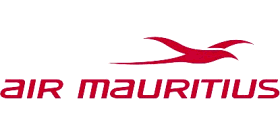 Air Mauritius Returns to Profitability with Strong Q1 Performance and Strategic Renewal
Air Mauritius Returns to Profitability with Strong Q1 Performance and Strategic Renewal
Air Mauritius has emerged from a challenging period to report a promising start to the fiscal year 2025/26, signaling a significant turnaround for the island nation’s flagship carrier. The airline transported 403,127 passengers in the first quarter, marking a modest yet meaningful 0.8% increase compared to the same period last year. This growth, coupled with improved load factors, has driven passenger revenues upward, contributing to a net profit of MUR 252.7 million (approximately EUR 4.9 million). This result represents the airline’s best first-quarter financial performance in nearly ten years, a milestone that underscores the effectiveness of recent strategic efforts.
Behind these encouraging numbers lies a complex backdrop. Air Mauritius has had to navigate operational hurdles, including multiple aircraft groundings that disrupted schedules and increased maintenance costs. Yet, the airline benefited from relatively stable fuel prices, which helped contain operating expenses amid a volatile global energy market. The strengthened Euro also played a favorable role in the financial outcome, given the airline’s exposure to currency fluctuations.
Crucially, decisive actions by the airline’s Board of Directors have been instrumental in steering the carrier back toward profitability. Since early 2025, a refreshed leadership team has taken bold steps to stabilize operations and implement reforms. The Board’s focus on financial discipline, operational efficiency, and strategic clarity has laid the groundwork for sustainable growth. This includes a careful reassessment of fleet expansion plans to align capacity with actual market demand, avoiding the pitfalls of overambitious aircraft orders that previously strained the airline’s finances.
Leadership changes are a key part of this renewal. The return of Andre Viljoen as CEO, effective October 2025, is widely viewed as a pivotal moment. Viljoen’s prior tenure was marked by operational reforms and recovery initiatives, and his reappointment signals a commitment to steady, pragmatic management. Alongside Viljoen, new appointments in commercial, technical, and financial roles are strengthening the airline’s core capabilities, ensuring that expertise is in place to support the turnaround.
Fleet modernization remains a central pillar of Air Mauritius’s strategy. The airline is actively replacing older ATR72-500 turboprops with newer ATR72-600 models, enhancing regional connectivity and operational efficiency, particularly on routes to Rodrigues Island and Réunion. Meanwhile, the future of the Airbus A350-900 order is under review, reflecting a more cautious approach to long-haul capacity expansion. This measured fleet planning aims to balance growth ambitions with financial sustainability, a lesson learned from past challenges.
Air Mauritius’s recovery is also set against the broader context of a dynamic African aviation market. The continent’s air travel sector is rebounding strongly post-pandemic, with increasing passenger volumes and expanding cargo demand. While Air Mauritius operates on a smaller scale compared to African giants like Ethiopian Airlines or Royal Air Maroc, its strategic focus on regional connectivity and niche services positions it well within the Indian Ocean and African markets. The airline’s extensive codeshare partnerships further extend its reach, linking Mauritius to key destinations across Africa, Asia, Europe, and beyond.
For African travel professionals, Air Mauritius’s resurgence offers renewed opportunities. The airline’s improved reliability, modernized fleet, and strategic network enhancements mean better connectivity and service quality for travelers to and from Mauritius. As the airline continues to implement its recovery plan, the coming months will be critical in consolidating gains and building momentum toward sustained profitability.
In summary, Air Mauritius’s first-quarter results for FY2025/26 reflect a hard-won recovery driven by operational resilience, strategic leadership, and prudent financial management. The airline’s journey back to profitability is a testament to the importance of aligning fleet capacity with market realities, strengthening governance, and leveraging Mauritius’s unique geographic position as a gateway between Africa and Asia. This renewed stability bodes well for the island’s tourism sector and the broader regional aviation landscape, offering a more dependable partner for the African travel industry as it navigates a rapidly evolving market.
